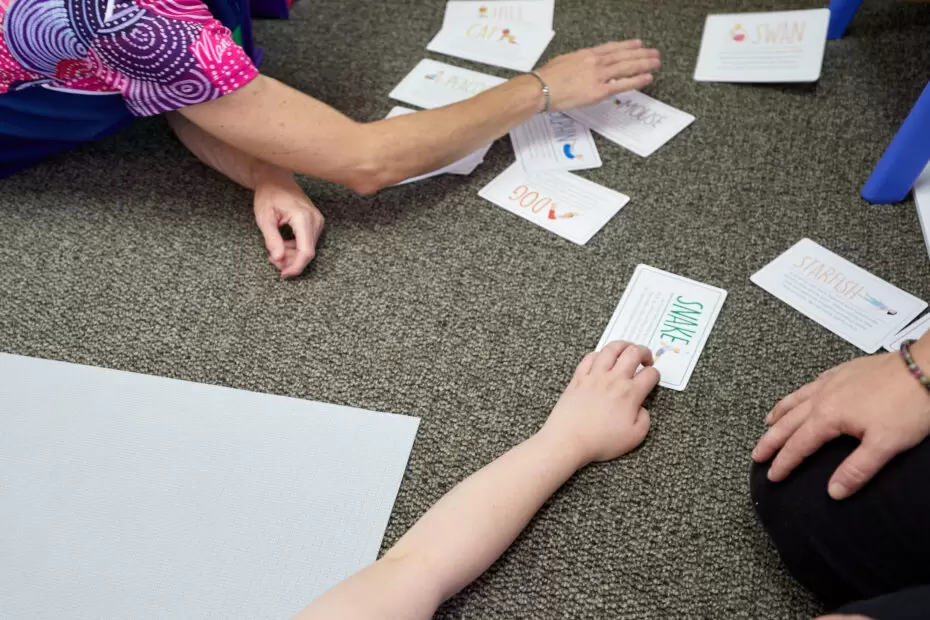Autism Assessments

Autism Assessments: A Step Toward Understanding and Support
At SPARC Family Counseling and Child Development Center, we specialize in Autism Assessments to help families, caregivers, and individuals better understand the presence of autism spectrum disorder (ASD). Led by Dr. Madhavi and her expert team, we provide a compassionate, thorough evaluation process that helps identify ASD and guide appropriate interventions. Whether you’re noticing developmental concerns in a child or seeking a deeper understanding of behavior, our autism assessments offer valuable insights that are the first step toward tailored support and care.
What is an Autism Assessment?
An autism assessment is a comprehensive evaluation designed to identify whether an individual meets the criteria for autism spectrum disorder (ASD). The assessment includes a variety of tools, such as structured interviews, observational techniques, and standardized tests, that are used to evaluate the person’s behavior, communication, social interactions, and developmental history.
ASD is a Neuro Developmental Disorder that affects how a person communicates, behaves, and interacts with others. The symptoms and severity of autism vary widely, making early and accurate diagnosis essential. An autism assessment is a crucial tool to identify signs of ASD and differentiate it from other developmental or behavioral conditions.
Why is Autism Assessment Important?
Autism assessments are vital because early detection of ASD allows for earlier intervention, which is key to improving long-term outcomes. The earlier a child is diagnosed, the sooner they can receive the necessary therapies and interventions to improve communication, social skills, and adaptive behavior.
Here are some key reasons why an autism assessment is important:
- Early Identification: Early detection of autism can lead to early intervention. This enables children to receive therapies like speech therapy, occupational therapy, and behavioral therapy, which can significantly enhance development and quality of life.
- Understanding the Needs of the Individual: Autism is a spectrum, meaning that individuals can experience a wide range of symptoms. An assessment helps identify the specific strengths and challenges of an individual, enabling a more tailored approach to intervention.
- Supporting Parents and Caregivers: Parents and caregivers can experience confusion and uncertainty when faced with the possibility of autism. An autism assessment can provide clarity, giving families the knowledge and resources they need to navigate the challenges ahead.
- Access to Resources and Support: A formal diagnosis through an autism assessment can open doors to special education services, therapy programs, and government support, all of which are designed to meet the needs of individuals with autism.
- Clarification of Co-occurring Conditions: Autism is often associated with other conditions such as ADHD, sensory processing issues, or learning disabilities. A comprehensive assessment can help identify these co-occurring conditions, allowing for more effective and holistic care.
How is an Autism Assessment Conducted?
An autism assessment typically involves a multi-step process designed to evaluate various aspects of development and behavior. Dr. Madhavi and her team follow a structured approach to ensure a comprehensive and accurate diagnosis. Here’s what you can expect during the assessment:
- Initial Consultation: The process begins with an initial consultation where the psychologist discusses the concerns and reasons for seeking an autism assessment. This is an opportunity for parents, caregivers, and individuals to share observations, developmental history, and any behavioral concerns they may have noticed.
- Developmental and Medical History: A thorough review of the individual’s developmental and medical history is conducted. This includes information about early milestones, health issues, family history, and any developmental concerns that may have been observed in infancy or early childhood.
- Behavioral Observations: Direct observation is a key component of the autism assessment. The psychologist will observe the individual in various settings (e.g., structured play, social interactions, communication). They will look for signs of social communication difficulties, repetitive behaviors, and other typical indicators of ASD.
- Standardized Testing: Several standardized tests and assessment tools are used to evaluate the individual’s behavior and developmental functioning. Commonly used tools include:
- Indian Scale for Assessment of Autism (ISAA): A tool specifically developed for the Indian population to assess and quantify autism-related behaviors, aiding in diagnosis and intervention planning.
- Childhood Autism Rating Scale (CARS): A behavioral rating scale used to help identify symptoms and severity of autism.
- Cognitive and Language Testing: Depending on the individual’s age and developmental level, additional cognitive and language assessments may be conducted to understand the person’s cognitive abilities and communication skills.
- Collaboration with Other Professionals: In some cases, the autism assessment may involve collaboration with other professionals, such as speech therapists, occupational therapists, or pediatricians, to gather a complete picture of the individual’s development.
- Final Report and Diagnosis: After completing the assessments, Dr. Madhavi will compile the findings into a comprehensive report that includes the diagnosis, a detailed analysis of the individual’s strengths and weaknesses, and recommendations for next steps. The results of the assessment will be explained in a follow-up consultation, and the psychologist will discuss any potential interventions or therapies that might be beneficial.
Signs of Autism in Children
Parents may seek an autism assessment if they notice signs of autism in their child. While symptoms can vary widely, here are some common signs of autism in children:
- Social Difficulties: Difficulty with social interactions, including limited eye contact, problems with sharing interests or emotions, and challenges understanding social cues.
- Communication Challenges: Delayed speech or language development, difficulty in maintaining conversations, and struggles with non-verbal communication like gestures and facial expressions.
- Repetitive Behaviors: Repetitive movements (e.g., hand-flapping, rocking), rigid routines, or obsessive interests in certain topics or activities.
- Sensory Sensitivities: Overreaction or underreaction to sensory stimuli, such as lights, sounds, textures, or smells.
- Difficulty with Change: Difficulty adjusting to changes in routine or environment.
If you notice any of these behaviors or concerns, seeking an autism assessment can provide valuable insight into your child’s development.
Why Choose SPARC for Your Autism Assessment?
At SPARC Family Counseling and Child Development Center, we are committed to providing compassionate, thorough, and professional autism assessments. Our approach is focused on understanding the unique needs of each individual and providing a supportive environment throughout the evaluation process.
- Experienced Professionals: Dr. Madhavi and her team have extensive experience in diagnosing and supporting individuals with autism spectrum disorder.
- Comprehensive and Compassionate Care: We understand that an autism diagnosis can be overwhelming. We provide clear, actionable advice and guidance every step of the way.
- Tailored Recommendations: Following the assessment, we offer personalized recommendations for interventions, therapies, and support services to help individuals and families move forward with confidence.
If you are concerned about autism or developmental delays in your child, or if you’re an adult seeking an understanding of your social or communication difficulties, contact SPARC Family Counseling and Child Development Center today. We are here to help you navigate the journey toward understanding and supporting your unique needs.
